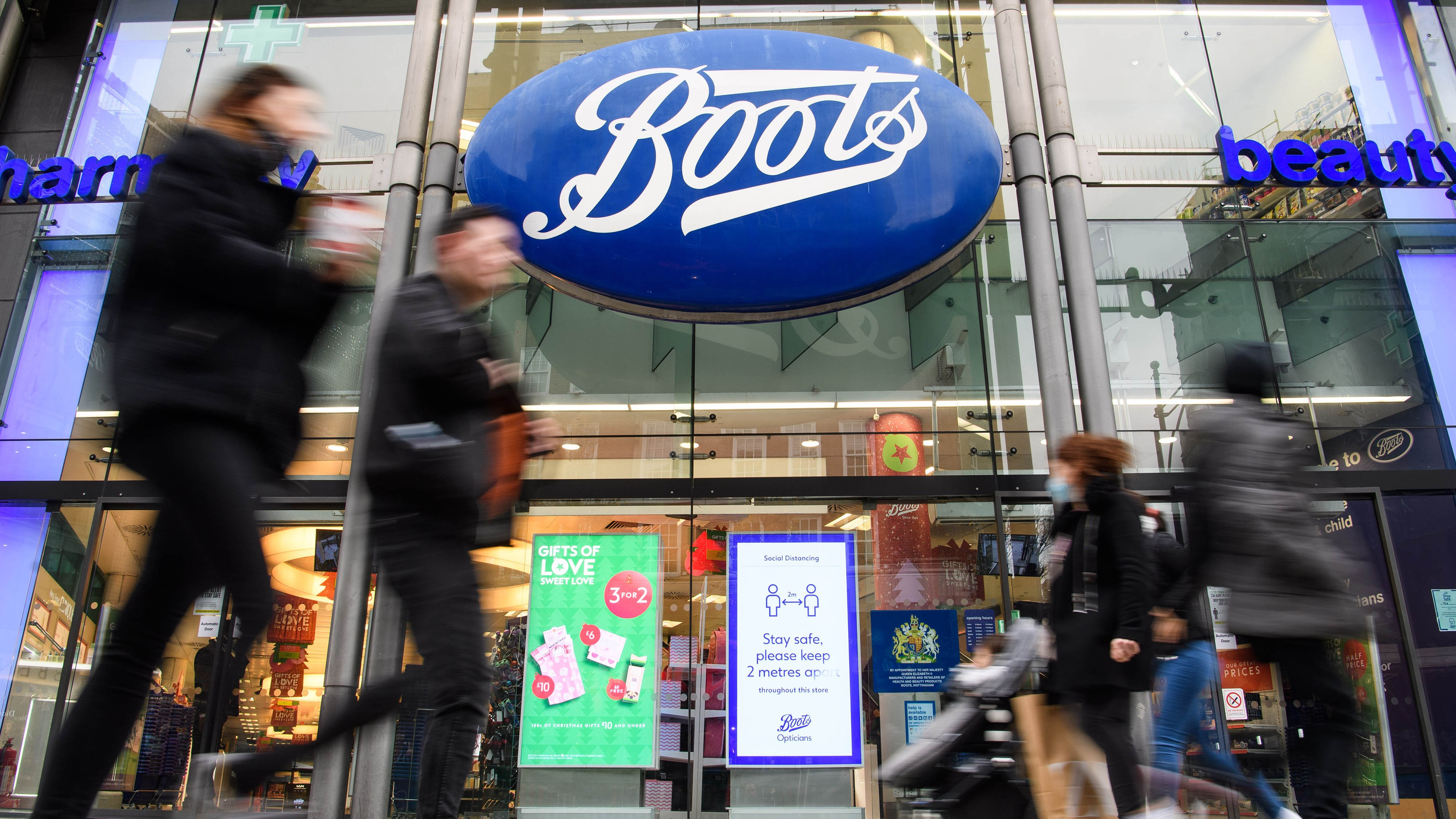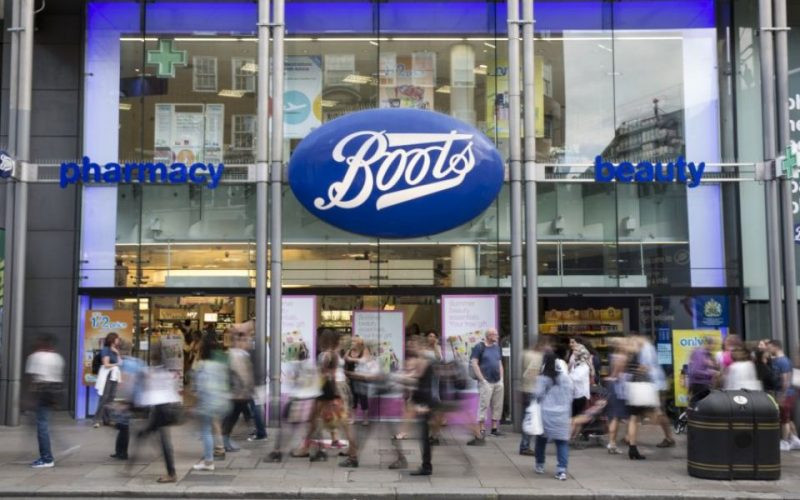The pharmacy giant has provided a significant update on its store closure plans, following an earlier announcement that 300 shops would permanently close. Last year Boots declared its intention to shut hundreds of branches in a bid to significantly reduce its store count across the UK. Now just 10 sites that were previously earmarked for closure remain open and are expected to lock their doors for the last time in the coming weeks. A staggering 33 branches have shuttered since July this year, the effect of which has been positive for business, but not so much for customers affected by local closures. Boots revealed that sales increased in the last quarter for the UK arm of the US parent company, The Walgreen Boots Alliance.
Since 2023, Boots has shut around 290 shops to reduce its store estate from around 2,200 down to 1,900 sites. According to The Sun, the 10 remaining stores are expected to shut by the end of October. While Boots has never published a full list of which shops will be closing under the plans, the majority of the affected sites shut after their store lease expired. Despite local unrest over the closures by pharmacy users, Boots has defended the move. It claimed that most closures were targeted to areas with another store nearby, within a three-mile radius.
This latest update follows new data obtained by Healthwatch revealing that 436 pharmacies closed permanently in England between January 1 and December 31, 2023. It's not just the UK branch of the Boots business that's faced closures. Challenging market conditions, as highlighted by Walgreens Boots Alliance CEO Tim Wentworth, revealed pressures on the US arm of the WBA. Previously sharing plans to close some US branches, the CEO said: "We continue to face a difficult operating environment, including persistent pressures on the US consumer and the impact of recent marketplace dynamics, which have eroded pharmacy margins." He added: "Informed by our strategic review, we are focused on improving our core business: retail pharmacy, which is central to the future of healthcare. We are addressing critical issues with urgency and working to unlock opportunities for growth."
Impact of Closures on Shoppers and Staff
The closures will result in Boots reducing its total number of stores from approximately 2,200 to just 1,900. In most instances, Boots has assured customers that they will have an alternative store less than three miles away. When the closure announcement was made last year, Boots' parent company Walgreens Boots Alliance stated: "Evolving the store estate in this way allows Boots to concentrate its team members where they are needed and focus investment more acutely in individual stores with the ambition of consistently delivering an excellent and reliable service in a fresh and up to date environment." Boots has reassured staff that those hit by store closures will be offered new roles elsewhere. The health and beauty retailer had previously shut down over 200 stores in an 18-month period during 2019, and in 2020, it announced the closure of 48 opticians, resulting in 4,000 job losses.
Boots Sales Surge Despite Closures
Just last month, Boots boasted a sales surge in its latest quarterly report, despite its parent company slashing profit forecasts and confirming US store closures. Boots UK reported a rise in sales for June across its pharmacy and retail operations for the quarter ending May. Yet, the total sales growth decelerated to 1.6% due to the impact of store closures over the previous year. Overall group sales were 2.6% higher at $36.4billion (£28.8 billion) for the quarter to May, as its US business saw stronger pharmacy sales offset a retail slump.
Boots Store Closure Plans: A Wider Trend
The '290' Boots closures comes as Walgreens Boots Alliance, the parent company of Boots UK, declared it was seeking to save £618 million. Boots is in the middle of closing 300 sites and has now revealed that 290 of these branches have shut their doors for good - with the remaining ten stores expected to shut by the end of October. The closures come after Walgreens Boots Alliance, the parent company of Boots UK, declared its mass closure plans in an effort to save £618 million, according to a previous WalesOnline account.
Reasons Behind the Closure
Although it operates just over 2,000 UK stores, Walgreens Boots Alliance previously outlined that it intended to shut 'up to 650', forming part of its efforts to trim costs. CEO of Walgreens Boots Alliance, Tim Wentworth, previously commented on the situation to say: "We continue to face a difficult operating environment, including persistent pressures on the US consumer and the impact of recent marketplace dynamics, which have eroded pharmacy margins. "Our results and outlook reflect these headwinds, despite solid performance in both our international and US healthcare segments. Informed by our strategic review, we are focused on improving our core business: retail pharmacy, which is central to the future of healthcare. We are addressing critical issues with urgency and working to unlock opportunities for growth."
The Boots closure wave also comes as numerous other firms are looking to shut their high street branches. This includes at least 292 bank branches, including 128 Lloyds Bank and 32 Halifax and 45 Bank of Scotland stores.
Where Are the Closures Taking Place?
Boots has never given a full list of the 300 stores closing. However, The Sun's has put together a list of 246 branches we know have closed for good:
The Future of Boots
Boots has issued a new update about its store closures - with the remaining sites scheduled to be shut within weeks. The health and beauty chain is in the middle of closing 300 sites - and has now revealed that 290 of these branches have shut their doors for good. The remaining ten stores earmarked for closure are expected to shut by the end of October, reports The Sun. Boots has never published a full list of which shops will be closing under the plans, but the majority of the affected sites shut after their store lease expired.
The closures will see Boots reduce its number of shops from around 2,200 to just 1,900. In most cases, Boots has said shoppers will have an alternative store less than three miles away. At the time of the closure announcement back in June last year, Boots' owner Walgreens Boots Alliance said: "Evolving the store estate in this way allows Boots to concentrate its team members where they are needed and focus investment more acutely in individual stores with the ambition of consistently delivering an excellent and reliable service in a fresh and up to date environment."
What’s Next for Boots?
Boots has said all affected workers are being offered alternative roles in other stores. The retailer closed more than 200 stores over 18 months in 2019 and in 2020, it announced 48 opticians would close with the loss of 4,000 jobs. Last month, Boots revealed a jump in sales for the latest quarter, as its parent firm cut profit forecasts and announced US store closures. Boots UK revealed higher sales in June across its pharmacy and retail businesses over the quarter to the end of May. However, total sales growth slowed to 1.6% as it was impacted by store closures over the past year. Overall group sales were 2.6% higher at $36.4billion (£28.8 billion) for the quarter to May, as its US business saw stronger pharmacy sales offset a retail slump.
The health and beauty firm also recently announced its managing director Sebastian James will stand down in November after six years in the role. Mr James said: “It has been a pleasure to lead this fantastic company and support its transformation during my time as managing director. “Now in its 175th year, Boots has shaped how people access health and beauty products on the high street and I am proud to have been part of a business that continues to hold a critical role at the centre of the UK health and beauty sectors.”
The Bigger Picture: High Street Decline
EMPTY shops have become an eyesore on many British high streets and are often symbolic of a town centre’s decline. The Sun's business editor Ashley Armstrong explains why so many retailers are shutting their doors. In many cases, retailers are shutting stores because they are no longer the money-makers they once were because of the rise of online shopping. Falling store sales and rising staff costs have made it even more expensive for shops to stay open. In some cases, retailers are shutting a store and reopening a new shop at the other end of a high street to reflect how a town has changed. The problem is that when a big shop closes, footfall falls across the local high street, which puts more shops at risk of closing. Retail parks are increasingly popular with shoppers, who want to be able to get easy, free parking at a time when local councils have hiked parking charges in towns. Many retailers including Next and Marks & Spencer have been shutting stores on the high street and taking bigger stores in better-performing retail parks instead. Boss Stuart Machin recently said that when it relocated a tired store in Chesterfield to a new big store in a retail park half a mile away, its sales in the area rose by 103%. In some cases, stores have been shut when a retailer goes bust, as in the case of Wilko, Debenhams Topshop, Dorothy Perkins and Paperchase to name a few. What’s increasingly common is when a chain goes bust a rival retailer or private equity firm snaps up the intellectual property rights so they can own the brand and sell it online. They may go on to open a handful of stores if there is customer demand, but there are rarely ever as many stores or in the same places.
Pharmacy Closures: A Widespread Issue
Pharmacy closures have become a "widespread challenge" across England. Healthwatch England said that closures can have "huge impacts" on patients - particularly those in rural communities and older people. New data obtained by Healthwatch found that 436 pharmacies closed permanently in England between January 1 and December 31, 2023 - the equivalent of eight pharmacies shutting their doors permanently every week. Healthwatch also sounded the alarm over temporary closures of pharmacies – which can last hours or days. Some 13,863 temporary closures were reported between January 1 and December 31 last year, according to a new Healthwatch briefing document. It warned that temporary and permanent pharmacy closures are "undermining people's access to care". Analysis of the data suggests that temporary closures were more common in rural areas compared with urban areas. North East and North Cumbria Integrated Care Board appeared to be worst affected by temporary closures, it found. Paul Rees, chief executive of the National Pharmacy Association, said: "It's clear that rising levels of closures are risking leaving some areas of the country as pharmacy deserts, with people having to travel much further to get access to vital services. "Community pharmacies act as the front door to the NHS. If people lose access to them, it will force more patients into the 8 o’clock scramble at their GP surgery, putting pressure on the rest of our NHS system. 1.6 million people a day visit their pharmacy but they are closing at a record rate, and millions of people are seeing the effect of that in their communities."
Hallo Healthcare Group, a subsidiary of investment group Aurelius, sold all 1,054 high street and community pharmacies under the Lloyds Pharmacy branding in November last year. Sources for the chain previously told The Sun that Hallo Healthcare had launched a strategic review of its entire UK store base. Lloyds Pharmacy also shut all 237 of its pharmacies in Sainsbury's supermarkets. Asda brought the shutters down on seven of its chemists in August 2023.

















